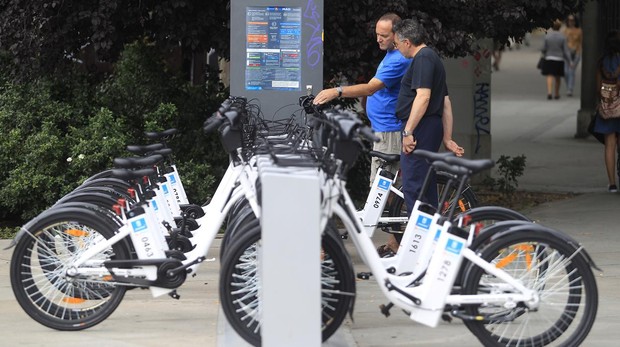The electric bike industry comprises over 400 factories, including OEMs and components manufacturers, but they seem to be poorly recognized by the Spanish Government.
Therefore, the Spanish Association of Bicycle Brands (AMBE) demands that they be acknowledged as such and given the prominence they deserve.
“We have not been taken seriously yet; the electric bike industry is experiencing significant investment and a major process of reindustrialization,” comments Jesús Freire, Secretary General of AMBE.

The reality is that in Spain, bicycle production has increased twofold compared to 2019.
Moreover, the industry has become so significant that it employs 24,000 people.
“We offer a high-quality industry with renown worldwide; however, we lack the support that other similar industries receive through specific support plans,” emphasizes Freire.
He adds, “We urge all political parties participating in these elections and the future government to pay more attention to electric bikes.”
According to AMBE’s estimations, within about five years, sales of conventional electric bikes will likely surpass those of traditional bicycles.
Additionally, the components industry is experiencing a growth process.
“This situation is not sustainable without demand incentive policies. This is where the public administration must undoubtedly implement measures for the electric bike,” expresses Freire.
The demand is made in the context of this week’s elections, which will define the next Government of Spain.
Other proposals for promoting electric bikes
Spain already has a State Strategy for Bicycles, approved in the Council of Ministers, which was developed over ten years.
AMBE was one of the organizations involved from the beginning.
“It’s a fundamental and prioritized national project, but it needs the budgetary and political boost it deserves,” comments Freire.
One of AMBE’s proposals is related to promoting greener taxation.
The idea is to reduce the IVA on the purchase, rental, and repair of bicycles in order to comply with a 2021 European agreement, which Spain supported at the Council of Ministers of the European Union’s Finance.
Some countries already apply this measure, such as Portugal and Luxembourg.
Specifically, Portugal has a IVA 15 points lower for the purchase, rental, and repair of electric bikes compared to Spain.
This could significantly boost the sector in the country, which already has over 3,100 points of sale and repair for bicycles.
“If Spain could update its fiscal policy, it would lower the cost of purchasing an electric bike by 3,000 euros. By implementing Portugal’s rule, the user would save 500 euros,” says the Secretary General.
Another point emphasized by Freire is the development of necessary infrastructure for cycling in urban and rural areas of Spain.
This is related to safety conditions, which are an integral part of the road network managed at the national, regional, and local levels.
Therefore, there should be incentives to create segregated and continuous bike lane networks.
These lanes should be comfortable and safe within urban areas, where there should also be a reduction in speed limits both in urban and rural zones.
One of the measures pointed out by Freire also concerns the Spanish Traffic Law and the General Circulation Regulations.
“They are not from the 21st century and do not consider or prioritize active means of transportation. They are not up to European standards,” he argues.
Bicycles demand specific traffic signal regulations.
They also seek to prioritize not allowing two-way circulation on single-lane roads.
Additionally, there should be a limit on the number of bicycles that can circulate in each lane.
France and Germany serve as examples, as they limit it to 20 or 30 bicycles.







